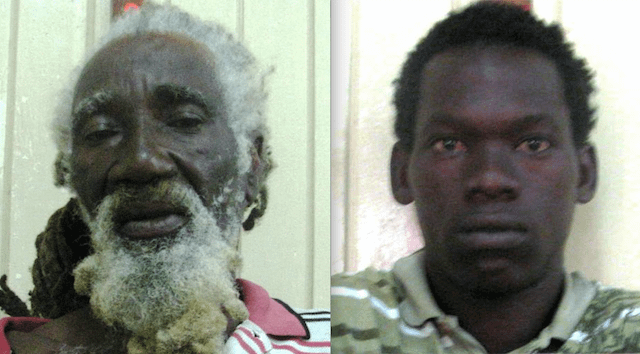
Sixty-two-year-old Meryl Chiddick was found guilty of murder in the High Court today.
Jurors were convinced Chiddick shot and killed Liberta farmer, Conroy Andrew at his farm on November 10, 2014.
The court heard detailed evidence of the killing from 23-year-old Aundrey Joseph who went with Chiddick to the scene.
He testified Chiddick led him in some bushes and they eventually arrive at the yard of a tall black rastaman.
Joseph said Chiddick told him to wait as the older man moved toward the rastaman, who had a cutlass in his hand.
He said he soon heard several gunshots before Chiddick ran back and said he killed the man.
He also recalled seeing the deceased’s body rolling on the ground.
Joseph, who was also charged with murder pleaded guilty to manslaughter before testifying against Chiddick at the trial.

Several other witnesses testified seeing the convict in the area on the day of the murder.
Chiddick will be sentenced next month.
Advertise with the mоѕt vіѕіtеd nеwѕ ѕіtе іn Antigua!
We offer fully customizable and flexible digital marketing packages.
Contact us at [email protected]
















Mr. Joseph needs/needed loving parents. It’s sad to even read his alias. I hope that he gets the appropriate rehabilitation.
PARTNERS IN CRIME
While the co-accused ‘…threw in the towel,’ early-o’clock, he did not hesitate to throw his ‘…Partner in Crime,’ no not ‘…under the bus,’ but to the Jury.
They believed his testimony.
Not exactly sure what led to the ‘…premeditation,’ but something had previously happened.
They went with a ‘…common design,’ and whatever it took, the intention was to ‘…kill the tall black rastaman.’
In the harsh realities of life, there is a time to die. One less ‘…thorn in the flesh’ or whatever else.
The deceased was made to suffer the ‘…consequences of instant death.’
Now the accused shall face the ‘…consequences of sure incarceration.’
Comments are closed.